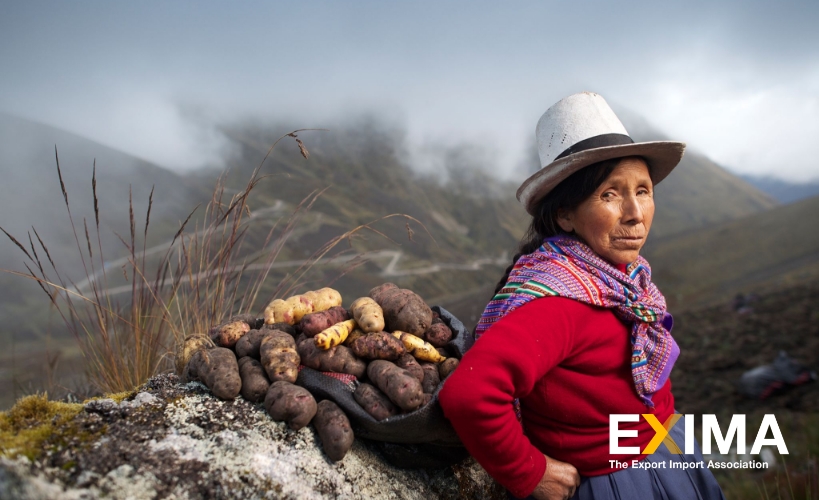Potato farmers in Bolivia are adapting to the ever-pressing peril of climate change by incorporating generations-old knowledge with new climate-smart technologies. In particular, farmers are bringing back old and native potato varieties that are naturally more resistant to the temperature extremes caused by climate change.

Climate Change Threatens Bolivia’s Potatoes
Potatoes originated in the Andes; the Incas are believed to be the first civilization to have cultivated the root vegetable. Over 4,000 varieties are now grown in the region, where potatoes are staples; however, climate change is threatening the future of this vital food source.
Increased temperatures, unpredictable rain patterns, increasingly severe and prevalent droughts, and other extreme weather events are the impacts of climate change, affecting the success of potato crop yields in Bolivia. Global agencies like the United Nations (UN) have recently emphasized that drying up rivers and soil depletion from climate change are threatening food security in Bolivia.
In response to this peril, farmers have begun to adapt by reviving the knowledge of their ancestors who used to take the wild potato plants successfully. These plants grew naturally around the lake to 3,800 meters above sea level, where they domesticated the crop and adopted effective farming techniques.
Ancestral Knowledge and Smart Potato Farming
Climate-smart agriculture refers to various practices that take ancestral knowledge of crop growing, some of which have long been forgotten, and incorporate it with cutting-edge technologies to help identify which plant species are most appropriate for cultivation in different areas. The technique takes into account specificities in altitude, humidity, soil characteristics, and temperature to help guide farmers on what and when they can plant.
With global average temperatures rising, potatoes grown in higher elevations and hot climates (such as the Andes) are facing severe limitations. To successfully grow crops under these conditions, more than 500 mm of water is a must over the growing season, which has become less and less reliable as climate change takes its toll.
Therefore, ancestral knowledge of potato varieties, in which some crops prevail in harsher conditions whereas others fail, is key to overcoming those problems. In addition, smart technologies such as sensors can collect round-the-clock data on factors such as soil moisture, air temperature, sunlight, and more in real-time. This method allows farmers to monitor closely, analyze conditions, and when combined with ancestral knowledge, it helps them choose which species to plant in different areas at specific times of the year to achieve the biggest and healthiest crop yields.
Bolivia represents just one example of how climate-smart agriculture is helping to secure the food supply and initiate sustainable farming practices that future-proof crop yields. Climate-smart agriculture will likely be the practical solution to address what climate change impacts crop production.

Learn More with EXIMA
To find out how the pandemic is affecting industries worldwide, make sure to check out the rest of our site today!


